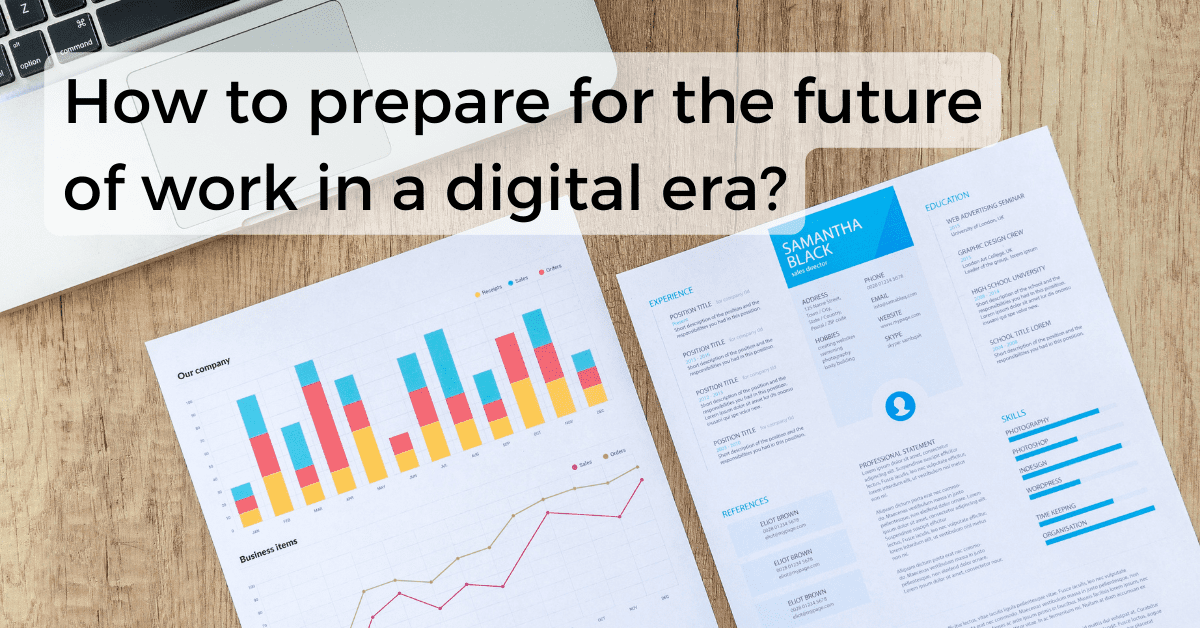Future-proofing your career has become a concern for everyone in the digital age. It is time for you to start asking yourself if your job will still be relevant in 10 or even five years.
In today’s digital era, everything that we do is impacted by technology; our jobs and career are no different.
When many large businesses vanished due to the rapid technological growth, even the front-liners of the present working generation have some fear themselves. Their fear is due to a larger percentage of digital-related jobs that exist today. According to Computer Weekly, staff were concerned about the impact of automation on job security (59%) and expressed a fear of change when digital transformation initiatives are introduced (49%).
So how can you avoid the endangered job list? Your profession may not be at risk now, but it’s important to know how your skills can stay relevant and in demand.
The changing job market
With the presence of AI & technology, the business landscape quickly changed. Businesses like Kodak, Nokia, etc… became no more relevant and just died out. The industries and the businesses are compelled to adapt themselves to the changing technological environment.
The scenario of the present professional and executive careers will be changed completely as a result of the digital revolution. It wouldn’t be a surprise if what is considered today as the highly valuable job skills would become irrelevant. From there, a new set of technology-driven skills become needed in the job market.
A study said 57% of businesses anticipate facing a significant skills gap in the next two years, so 72% identify re-skilling existing workforce as a high priority.
What should you do to concrete your position in the present organization? How to stay ahead in a rapid technological-driven market?
>> Read more: How Artificial Intelligence is Transforming Education
Assess your current situation
Even when you are not looking for a job, observing and studying the job market is essential. Keep up with the latest industry news, including articles related to your profession. Through this approach, you can determine the job market value of your position.
Start tracking records of accomplishment at work by compiling previous performance reviews, reference letters, presentations, and relevant documents from your current employment. Search for things that you have completed based on numbers, data, or percentages. Take your time to think about your contributions that lead to company growth.

What you need to do
1. Create & build your personal brand
Establishing a digital identity is crucial to expand personal networks and define your position in the market.
There are multiple channels that you can take advantage of that are influential to your career building. Two that stands out are social media and professional associations. Focus on improving your digital identity and online profile once it’s in the digital space. However, only social media is not enough when it comes to marketing your brand. Therefore, you need to get your customer insights in order to reach the right people as well as to let people find you for the right purpose.
By expressing yourself through a consistent personal brand, you’ll also enable employers to assess your cultural fit. From that, hiring decision is made in a more efficient way. According to Forbes, 90 percent of executive recruiters say they conduct online research of potential candidates.
2. Remain tech-savvy
It’s not only the businesses, but even the employment is becoming digitalized.
According to research by PwC, over 50% of people think technology will determine workplace changes in the next five to 10 years. The majority of people think that technological breakthroughs will be the driving force in changing how we work in the near future.
The organizations require people who can embrace technological advancements and can tackle technical issues while performing the job. Refining your problem-solving and decision-making skills can ensure you have a hold in your current organization and also have an advantage in future opportunities. Your project management skills that you develop in your current job can help you greatly in your future career as well.
>> Read more: Building employee career paths in the new era
3. Solidify your network channels
The power of networking is one of the few things that probably won’t change in the foreseeable future, regardless of how the digital age alters the workforce. It’s so much easier to get the job you want if you know the right people or professionals. They have their own personal connection in order to introduce you to hiring managers or take your skills into notice and support you when you’re aiming to transfer to a different department at the same company.
Based on Glassdoor’s numbers, your chances of getting an offer are a “statistically significant” 2.6% to 6.6% higher if you were referred by a current employee than if you weren’t.
You never know when someone’s good word could be what leads you to a better career path. Therefore, stay connected with not only people in higher positions but interns and people in different pay grades as well.
Your future career is in your control. By embracing change and new technology, your career transitions will be much smoother and easier. What are you waiting for? Now’s a great time to start preparing for your career in the digital world!
JobHopin Team

